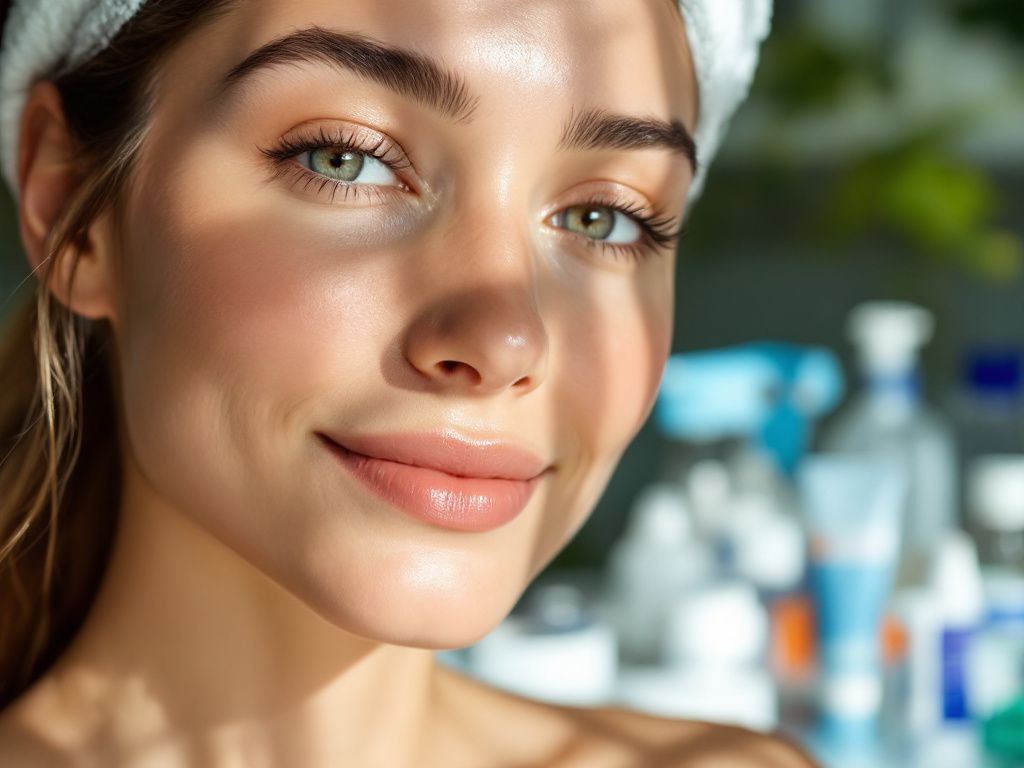
Title: Transformative Anti-Aging Strategies: The Science Behind Ageless Skin
Transforming the age of our skin is deeply rooted in an understanding of the secrets held within the cellular and molecular layers. As an expert in anti-aging, skincare, and beauty, I invite you to explore the science-backed strategies for achieving youthful, radiant skin. This guide elucidates key ingredients, treatments, and evidence-based findings that are redefining the promise of ageless skin.
Understanding the Aging Process
Aging is a multifaceted process involving intrinsic (genetic and biological factors) and extrinsic factors (environment, lifestyle, and sun exposure). Key mechanisms include:
- Cellular Senescence: As cells age, they enter a state where they cease dividing but remain metabolically active, contributing to the degradation of surrounding tissues.
- Oxidative Stress: Reactive oxygen species (ROS) damage cellular structures, leading to fine lines, wrinkles, and pigmentation.
- Collagen Degradation: With age, collagen production diminishes while enzymatic degradation increases, reducing skin firmness and elasticity.
Evidence-Based Anti-Aging Interventions

1. Retinoids
Retinoids, derivatives of vitamin A, are the gold standard in anti-aging treatment due to their proven efficacy in skin cell turnover, collagen synthesis, and wrinkle reduction. Among these, tretinoin has shown remarkable results in enhancing skin texture and reducing signs of aging.
- Product Recommendation: Retin-A (Tretinoin Cream) – Clinically proven to reduce wrinkle depth and improve skin tone within weeks.
2. Antioxidants
Combat oxidative stress with potent antioxidants like vitamin C, vitamin E, and ferulic acid. These compounds neutralize ROS, protect collagen from degradation, and brighten the skin.

- Product Recommendation: SkinCeuticals C E Ferulic Serum – This combination of antioxidants delivers an eightfold increase in skin’s natural protection against photoaging.
3. Peptides
Peptides are short chains of amino acids that stimulate collagen synthesis and improve skin barrier function. Research supports their efficacy in enhancing skin elasticity and smoothness.
- Product Recommendation: The Ordinary “Buffet” – A multi-technology peptide serum that targets multiple signs of aging by incorporating Matrixyl 3000 and Syn-Ake peptides.
4. Hyaluronic Acid
Known for its remarkable ability to retain moisture, hyaluronic acid enhances skin plumpness and diminishes fine lines. It is particularly beneficial in maintaining hydration in the skin’s extracellular matrix.

- Product Recommendation: Neutrogena Hydro Boost Water Gel – Infused with hyaluronic acid that instantly quenches dry skin and maintains hydration.
Advanced Clinical Treatments
- Microneedling: This technique involves creating micro-injuries in the skin to stimulate collagen and elastin production, enhancing skin texture and firmness. A study published in the Journal of Cutaneous and Aesthetic Surgery supports its efficacy and safety.
- Laser Therapies: Procedures such as Fractional CO2 laser revitalization have shown significant improvements in skin texture and resilience, bolstering collagen production as evidenced by studies like those from the American Journal of Clinical Dermatology.
Conclusion
The pursuit of ageless skin is attainable through an integrative approach that merges potent topical treatments with evidence-based clinical interventions. By harnessing the power of scientifically validated ingredients and technologies, we can effectively combat the signs of aging, promoting not just the appearance but the essence of youthful skin.
Frequently Asked Questions
What are the benefits of using a hair mask in my hair care routine?
Using a hair mask can provide several benefits, including hydration, smoothing, strengthening, curl definition, heat protection, and damage repair. Hair masks infuse the hair with moisture, help coat the hair shaft to seal split ends, reduce breakage, and protect the hair from heat styling and environmental damage. For more on protecting your hair tips, see protective hairstyles for hair ends.
What ingredients should I look for in a hair mask?
Effective hair masks often include ingredients such as coconut oil, argan oil, shea butter, honey, avocado oil, green tea, and coconut water. These ingredients provide nourishment, moisturize, and protect the hair, offering benefits like softening, moisturizing, and protecting against damage. To learn about best hair growth shampoos that complement hair care, explore related products.
How often should I use a hair mask in my routine?
You should use a hair mask whenever your hair feels dry, unmanageable, or in need of intense hydration. This can vary depending on your hair type and needs, but generally, using a hair mask once or twice a week can help maintain healthy and moisturized hair. For tips on managing hair moisture, see hair masks for oily hair.
How do I apply a hair mask for the best results?
To apply a hair mask effectively, shampoo your hair first, then apply the mask, focusing especially on the ends where hair tends to be the most damaged. Leave the mask on for anywhere from 10 minutes to overnight, depending on the type of mask and your hair’s needs. For detailed guidance, refer to the lazy girl’s guide to flawless hair.


Leave a Reply